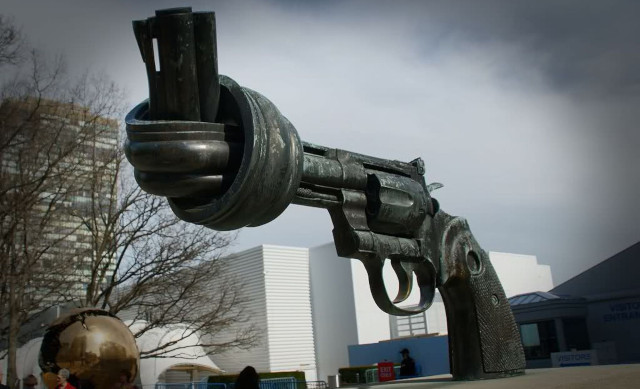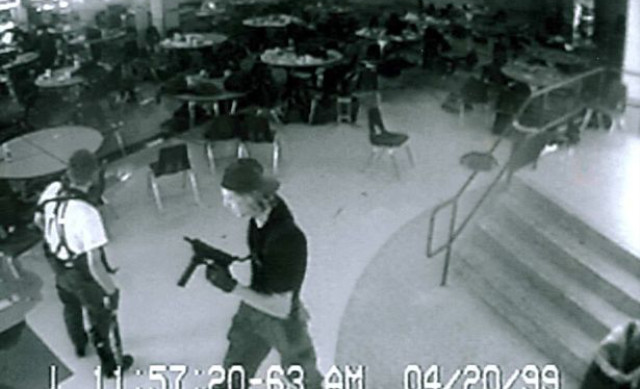By Marvin Marroquin • Updated: 02/22/2023 • 7 min read
Whenever there’s a mass shooting the common response from gun control advocates to prevent further bloodshed is to impose new laws. Yet, these “common-sense” gun laws would’ve had no effect on actually curbing gun violence. Some have even proven to fail, yet we continue with this rhetoric that it’ll decrease gun violence. However, as a gun enthusiast and Second Amendment advocate, I strongly believe gun control is not only ineffective in reducing gun violence, but it actually creates more problems than it solves.
At its core, the biggest issues with gun control is that it only affects law-abiding citizens, while criminals will always find ways around the law. This means that the people who are negatively impacted by gun control are those who follow the law and use guns for legitimate purposes, such as self-defense, hunting, or sport and recreation. Meanwhile, criminals will continue to ignore the law, obtain firearms illegally, and continue to commit crimes.
Restricting Gun Ownership
Restricting gun ownership is like trying to stop a flood with a bucket – it’s ineffective and creates more problems than it solves. It targets law-abiding citizens instead of criminals. The truth is, criminals don’t care about gun laws. They’ll always find a way to get a gun, whether it’s through the black market, straw purchases, or theft. Meanwhile, law-abiding citizens are left defenseless.
Take Chicago, for example. It has some of the strictest gun laws in the country, yet it still has some of the highest rates of gun violence. Criminals aren’t deterred by these laws, they’re empowered by them because they know that their potential victims are unarmed and vulnerable.
In fact, in many cases, gun restrictions actually make the problem worse. When you limit law-abiding citizens’ ability to own guns, you’re effectively disarming the good guys and creating a situation where the bad guys have the upper hand. The vast majority of gun owners are responsible individuals who use their firearms for lawful purposes, such as hunting, sport shooting, and self-defense. By enacting laws that restrict their access to firearms, we only disarm the very people who could use them to prevent or stop a violent crime.

Furthermore, gun restrictions do not address the root causes of violence, such as mental health issues, poverty, and drug abuse. Instead, they create a false sense of security that does not translate into safer communities. We need to focus on addressing the root causes of violence and enforcing existing laws that are meant to keep guns out of the hands of criminals. We also need to empower law-abiding citizens to exercise their right to self-defense, whether through firearms or other means. Only then can we create safer communities and reduce the incidence of gun violence.
Laws such as Universal Background Checks (UBC), a popular gun control proposal, wouldn’t have new benefits than the system already in place. The simple reason is that criminals acquire firearms through illegal channels that don’t require background checks. UBCs also infringe on your freedom to sell, trade, or transfer personal property.
Another idea floating around to restrict gun ownership is to register the firearms to the owner. But the problem here is that criminals realistically won’t register their weapons. Even countries like Canada and New Zealand, have abandoned their failed registry programs. The cost to maintain such a database and the man-power required to enforce it was simply too high to justify it. Additionally, fear of unconstitutional confiscation of personal firearms has gun owners skeptical of a registry program.
Restricting Use of Guns
Restricting the use of guns in a defensive situation is ineffective in stopping gun violence because it essentially makes law-abiding citizens defenseless against criminals who carry illegal guns. The only people who would be affected by such restrictions are those who abide by the law, leaving them vulnerable to violent attacks. Criminals, on the other hand, would continue to obtain and use firearms illegally, putting law-abiding citizens at a greater disadvantage.
Another popular form of gun control is the Gun Free Zone, but history shows what an enormous failure it has been. A great example is the shooting at Marjory Stoneman Douglas High School in Parkland, Florida in 2018. The school had a “Gun Free Zone” policy, which meant that no firearms were allowed on campus, even for self-defense. The shooter was able to enter the school and carry out his attack unimpeded, as no one was able to defend themselves or others with a firearm. The Gun Free Zone actually created more vulnerability and harm in a situation where immediate defensive action was necessary.
Additionally, opponents of Concealed Carry Laws would say civilians shouldn’t have firearms because they don’t have proper training. They make it seem like it’ll turn into the Wild West with shootings happening everywhere and innocent bystanders being shot. The Indiana Sheriff’s Department revealed 75-80% of rounds fired by officers actually miss their target even with all their training. Often times, violence can be deterred without a single shot fired.
Restricting the Guns
When it comes to gun violence, the focus should be on the root causes and addressing those issues, not on simply restricting or banning guns. Taking away guns doesn’t take away the underlying problems that lead to violence. In fact, gun bans have been tried before in places like Australia and the UK, and they didn’t have the desired effect of reducing violence.
The assault weapons ban of 1994 was a prime example of gun control that didn’t work. It failed to reduce crime or gun violence in any significant way. And you know what they say: if at first you don’t succeed, try again. Unfortunately, that’s exactly what some politicians are doing.
This ban was largely ineffective because it was based on cosmetic features rather than function. A rifle that looked scary but had the same function as a hunting rifle was banned, while a hunting rifle that looked less intimidating was still allowed. It was a clear case of politicians trying to look like they were doing something about gun violence without actually doing anything meaningful.
But here’s the kicker: even during the time the ban was in effect, gun violence still continued. In fact, studies have shown that the ban had no significant impact on gun violence or crime rates. Criminology Professor Christopher S. Koper assessed the impact of that ban and concluded “the ban did not appear to effect gun violence during the time it was in effect.” And when the ban expired in 2004, there wasn’t any noticeable increase in gun violence or crime rates either.

Even during the 1994 Assault Weapons Ban, we still experienced mass shootings. Take the Columbine school shooting, for example. That tragic event occurred in 1999, well into the ban. And guess what? The perpetrators used weapons, and homemade explosives, that were already illegal under the ban. So, what did the ban actually accomplish? Not much in terms of preventing violent crime. It was just another example of feel-good legislation that did little to address the root causes of gun violence.
Finally, gun control activists say that limiting magazine capacity would require shooters to reload frequently, creating an opportunity to stop the mayhem. The Indiana Sheriff’s Department study exposed this scenario is highly unlikely. Instead, what we find in states like New York that limit magazine capacity, is that good people are trying to protect themselves with 10 rounds while criminals are outgunning them with 15, 17, even 33 round magazines. How is that “common sense”?
Now we can clearly see why restricting gun ownership, the use of firearms, and the firearms themselves would do nothing to stop a criminal. There’s a common thread in all these arguments; none of these “common-sense” gun control laws would stop a criminal or any past mass shooting. Criminals, by definition, are lawbreakers and would prefer a defenseless victim to an armed one. These proposals only effect responsible gun owners. We should be focusing on resources that will actually target criminals.
